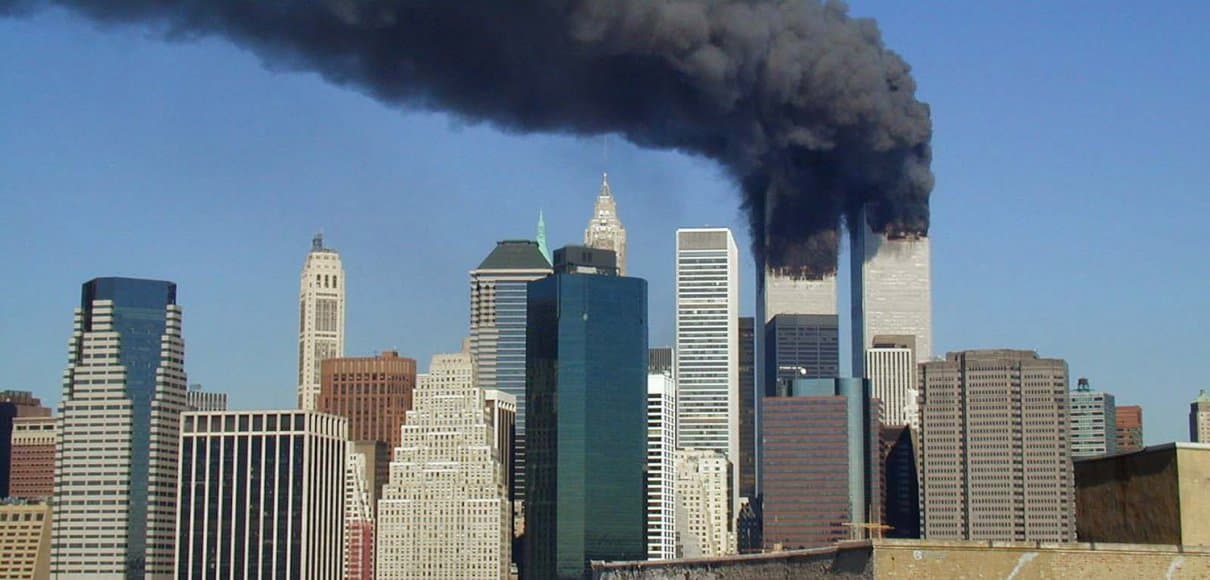Most college students attending Seattle Pacific University today have no memory of life before Sept. 11, 2001. They are too young to recall when they first heard news of the terror attacks, nor did they comprehend the far-reaching repercussions of the tragedy.
They have no memories of standing at airport gates to say goodbye to or greet a loved one. They don’t remember when people could roam an airport without a plane ticket or ID or a time when travelers could carry more than three ounces of a liquid through a security checkpoint.
Outside of the significant changes to air travel, today’s college students have lived their entire lives against the backdrop of America’s war on terror, with U.S. troops on the ground in Afghanistan and elsewhere.
As the United States reflects on the 20th anniversary of Sept. 11, here is a look back at how Seattle Pacific University responded to the tragedy in 2001 and what some prominent SPU voices had to say at the time.
The SPU Community Responds
In the fall of 2001, stunned SPU students held a candlelight march from Martin Square to the Student Union Building and held a covenant-signing on campus, pledging to live out faith in difficult times. The school held a weekly prayer service for the world and hosted a series of community forums on topics such as “Understanding the Arab World” and “The Place of Just War and Responses to Terrorism.”
Tim Dearborn, then Dean of the Chapel, led a Christian-Muslim dialogue as hate crimes against Muslims increased across the country. (In 2000, the FBI recorded 12 anti-Muslim assaults. In 2001, they saw 93 assaults against Muslims.)
Les Parrott, a professor of psychology at SPU at the time, flew to Ground Zero in Manhattan to train clergy and social service staff responding to the families of victims, and he also provided trauma counseling for firefighters and others in New York City.
SPU students created a Wall of Hope on campus where people could post prayer requests, and they also created an online Response bulletin board for students and alumni from around the world to share their prayers, thoughts, and stories.
SPU Voices
In the wake of the attacks, Response published essays from SPU professors, alumni, and others with their thoughts about how Christians could respond to the tragedy.

Gaylord Gunhus ’62
U.S. Army Chief of Chaplains (1999 – 2003)
“We must demonstrate through our lives that Christ loves all peoples. Across America, peaceful, loving Muslims need the friendship of Christians whose lives convey the message of the second greatest commandment to ‘love our neighbors as ourselves.’”

Miriam Adeney
SPU Associate Professor of World Christian Studies
“Becoming global Christians does not mean creating a paternalistic relationship with believers in other countries. It means being siblings under a heavenly Father. We have much to give in answering some needs, but our brothers and sisters have resources we can no longer live without.”

Philip W. Eaton
President Emeritus, Seattle Pacific University
“Perhaps Sept. 11 has taught us the limits of postmodern relativism. We imagined for a while that we could have a civilized world without condemning some things as wrong. Our appetite for tolerance had grown insatiable. Evil had gone out of our vocabulary. Cultural relativism took over the imagination — in the academy, no doubt about it, but all over our culture.”

Donald Holsinger
Professor Emeritus of History
“Nothing could justify the murderous actions of Sept. 11; neither are the victims of Sept.11 honored by a refusal to ask the question “why?” Who among us would argue that suicidal terrorists are born murderers? The victims will be honored by our efforts to ensure that their children and grandchildren will never again be visited by such tragedy.”

Salim Munayer
Executive director and founder of Musalaha Ministry of Reconciliation
“The Koran does not teach terrorism, but neither is there a specific teaching like the teaching of Jesus to love your enemies. I am not downplaying the threat, but we must respond with the gospel and look at their grievances, for these are obstacles for them in understanding Christianity. Christ’s obedience on the cross compels us to obey his commands for unity, which is essential in our proclamation that he is savior of the world.”

H. Mark Abbott
First Free Methodist Church Pastor in 2001
“Love for all people, even our enemies, is what the Scripture teaches us. As the face of Jesus in difficult times, we must resist any temptation to vent our anger on Middle-Easterners or Muslims or Afghanis. The face of Jesus seen in us is the face of love, love expressing active compassion for those in need, love mourning with those who mourn, love suffering with those who suffer.”




